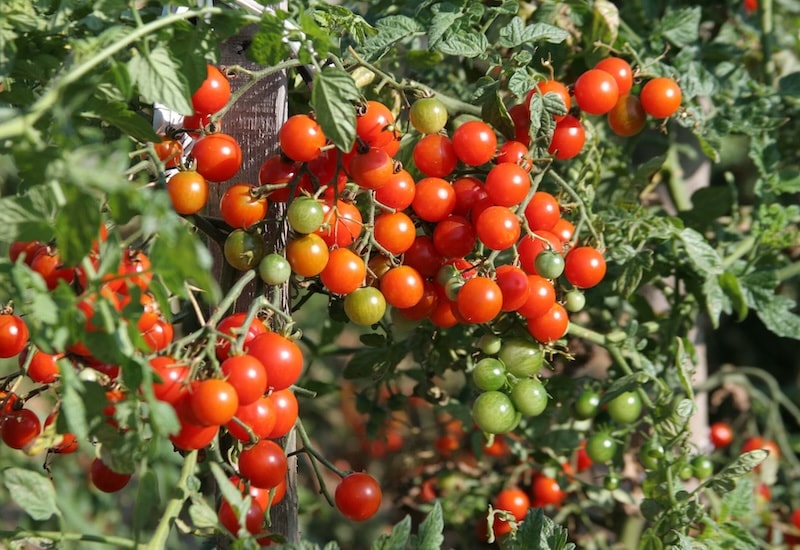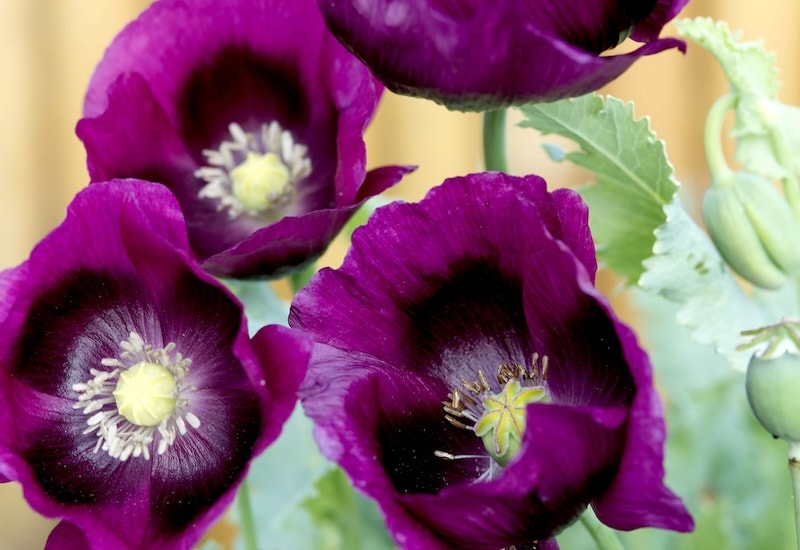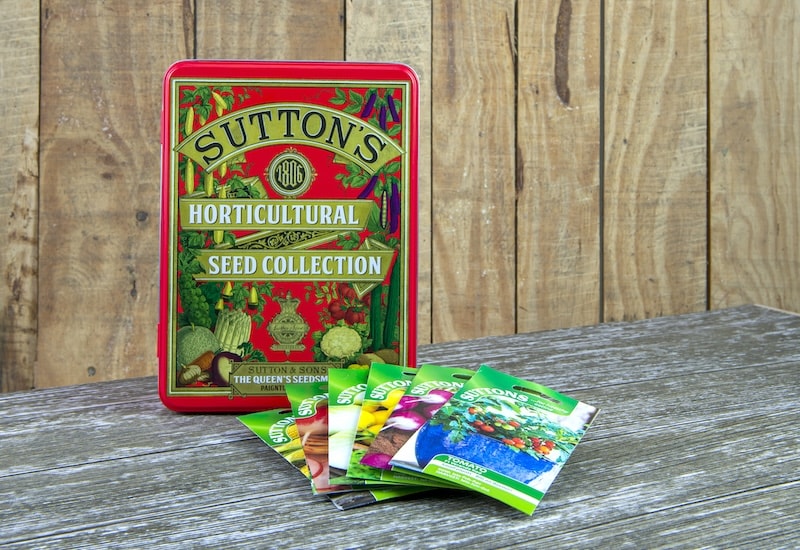Author: Rob Smith
Seeds are crucial to every gardener’s successful growing journey – whether that’s fruit, vegetables or flowers. There are two main categories of seeds: F1 hybrid and open-pollinated (OP). In this article, horticultural expert Rob Smith explains the main differences, along with advice on which type is best suited to your purposes.
Browse our full range of vegetable seeds and enjoy our handpicked collection of flower seeds for F1 and OP varieties.
What are F1 hybrid seeds?

Image: Tomato Seeds – ‘F1 Sweet Million’ (Indeterminate) from Suttons
F1 hybrid seeds are known for their improved uniformity and vigour, and often have an enhanced resistance to pests and disease. The result of controlled cross-pollination between two different parent plants, F1 hybrid seeds are specially selected for their desirable characteristics. Carried out by professional breeders, this process aims to produce offspring with a combination of their parents’ best characteristics.
‘F1’ means ‘first filial generation’, and indicates the first generation produced from the parental cross. F1 seeds tend to produce plants that are more uniform in look and performance than those grown from open-pollinated seeds. A popular choice for commercial growers and those seeking consistency in the garden, they’re specifically bred for improved yields, size and sometimes robustness.
One notable drawback of F1 hybrid seeds is that they don’t produce seeds that reliably ‘come true to type’. So, if you save seeds from an F1 hybrid, the plants produced are likely to show a broad range of characteristics, often not resembling their parent.
What are open-pollinated seeds?

Image: Poppy Seeds – ‘Laurens Grape’ from Suttons
Originating from plants that are pollinated naturally, open-pollinated seeds use the wind, insects, birds, or other natural mechanisms of pollination. More genetically diverse than F1 hybrids, open-pollinated plants attain a greater variation in plant traits such as size, colour and taste – a diversity that’s often beneficial, allowing plants to adapt over time to growing challenges and local conditions.
That they come ‘true to type’ when saved and replanted is one of the most significant advantages of open-pollinated seeds. A practice that supports biodiversity, resilience and sustainability in gardening and farming, gardeners can reliably save seeds from their best plants each year to gradually develop varieties uniquely suited to their garden’s specific micro-environments.
Often heirloom varieties, open-pollinated seeds have been passed down for generations. Cherished for their unique histories, flavours and colours, they offer a connection to the past and a counterpoint to commercial agriculture’s uniformity.
Your garden, your choice
Both seed types are available from Suttons, and both have their places in modern gardening (and in agriculture).
- F1 hybrid seeds offer vigour and consistency, often with higher yields.
- Open-pollinated seeds appeal to those who value sustainability and heirloom varieties, offering genetic diversity and adaptability, plus the opportunity to save and share seeds.
To help you easily identify which seeds you’re buying, Suttons’ F1 hybrid seeds are clearly labelled as such on every seed packet. Those not marked with the word ‘F1’ are typically open-pollinated. This labelling aims to help you make informed decisions when buying your seeds – whether that’s supporting your specific gardening goals or contributing towards biodiversity and sustainability.
We hope this has helped you to decide which types of fruit, flower and vegetable seeds to choose. See our advice on when to sow vegetable seeds and our monthly flower seed sowing calendar to start everything off at the optimum time.
Lead image: Suttons 1806 Red Tin plus Veg Lover’s Seed Collection




